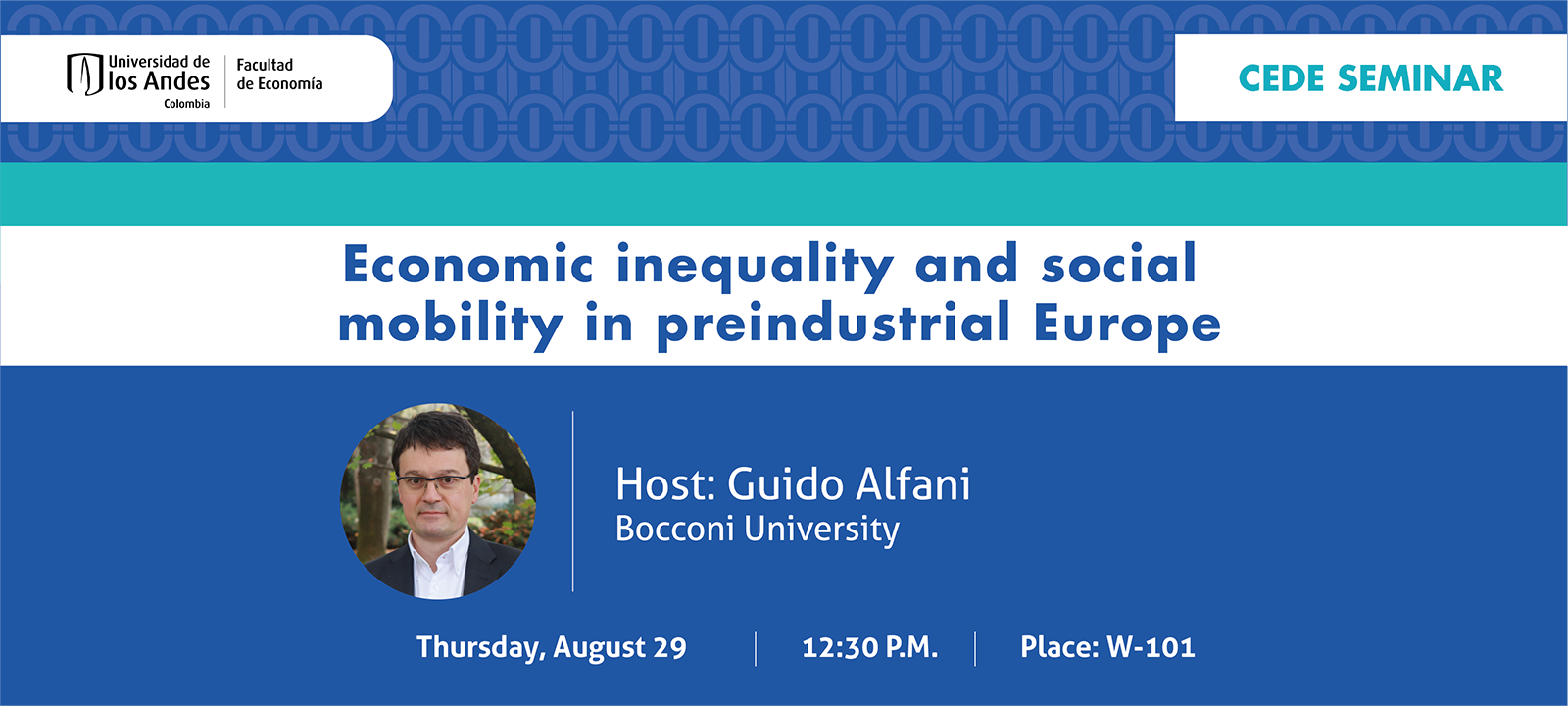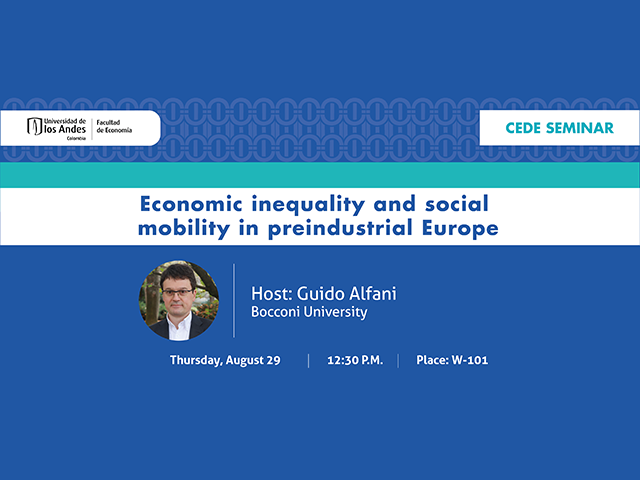CEDE Seminar - Guido Alfani

Recent research in economic history has unearthed previously unknown facts about the long-term trends in inequality. We now have, for at least some areas of Europe, continuous time series of key inequality indicators from ca. 1300. Most of these series have resulted from the research conducted by the ERC-funded project EINITE – Economic Inequality across Italy and Europe 1300-1800 and by its follow-up project, SMITE – Social Mobility and Inequality across Italy and Europe 1300-1800. These new data are changing the way in which we perceive economic inequality not only in the past, but even today – as a key lesson from history, is that economic inequality (especially, but not only, of wealth) has a marked tendency for increasing over time, and only catastrophes on the scale of the Black Death or the World Wars managed to bring it down, albeit temporarily. Additionally, the new historical evidence is also relevant to the debate about the long-term determinants of inequality growth. This seems to be independent, to a large degree at least, from economic growth. Other factors seem to have played a crucial role, including institutional factors and in particular (in the early modern period) the rise of the fiscal-military state. The seminar will provide an overview of recent research on inequality in preindustrial Europe, with a particular focus on some areas on which research is currently ongoing, in particular the southern Italian regions of Apulia and Sicily.

